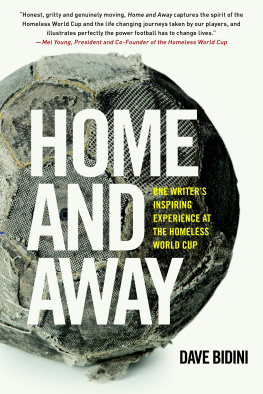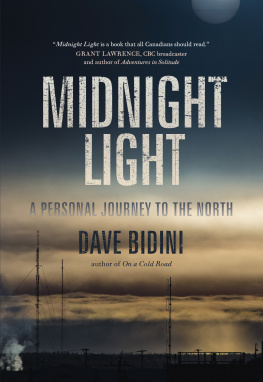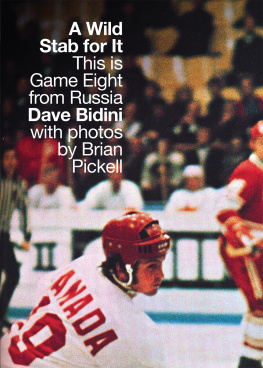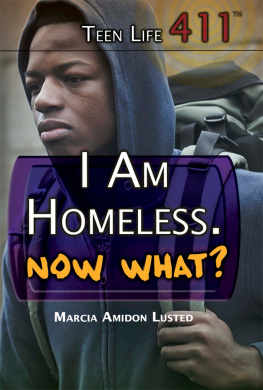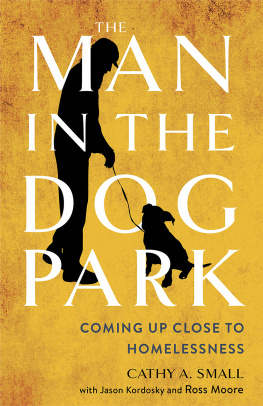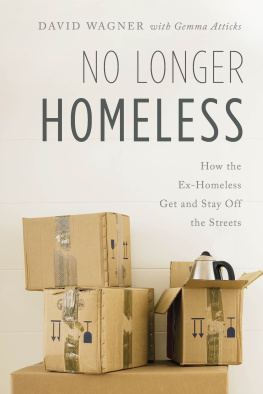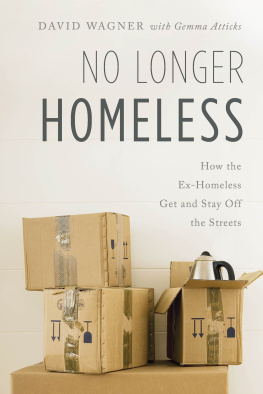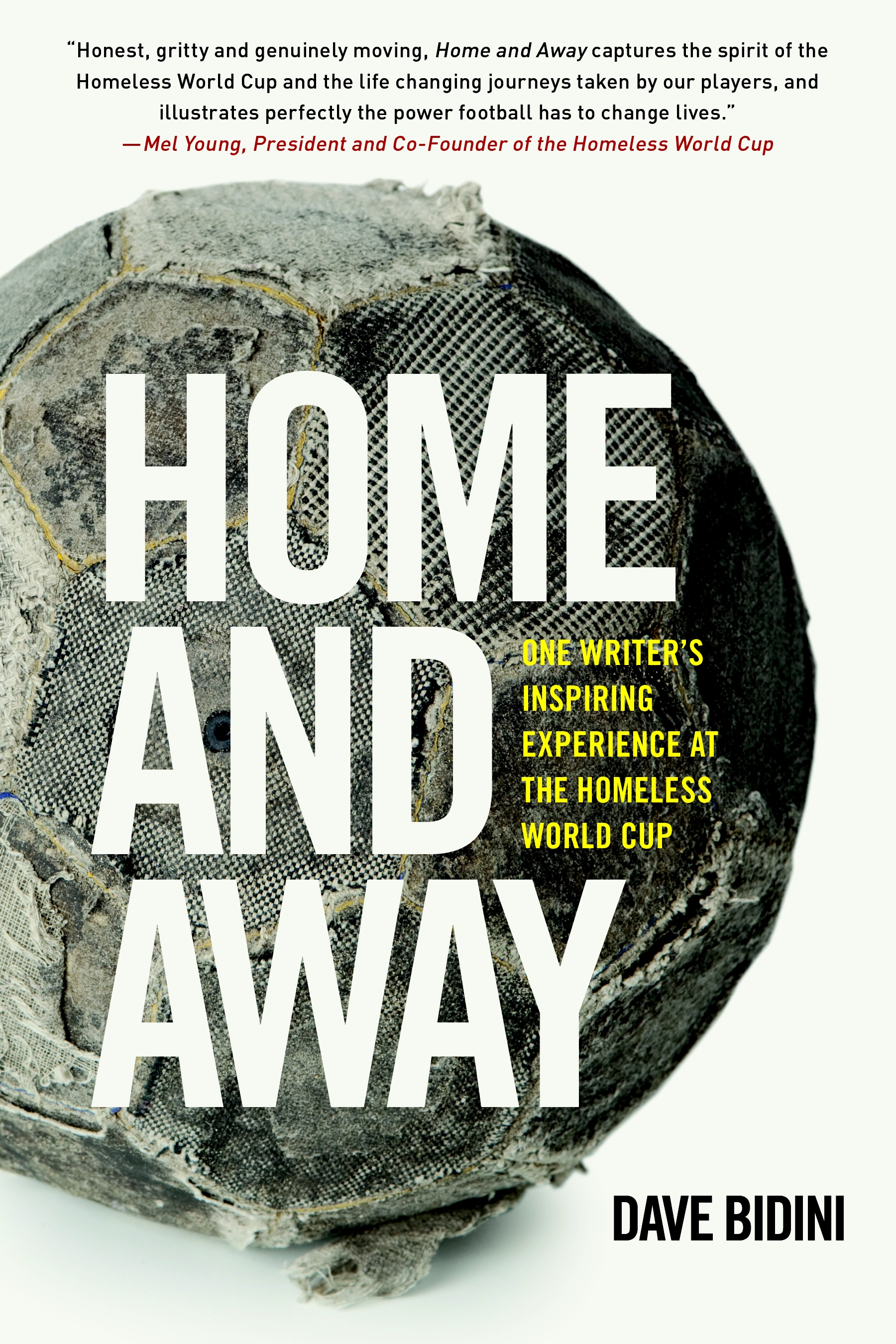T HE AUTHOR WISHES to acknowledge editor Mark Weinstein of Skyhorse, who, a few years ago, wrote an email to say: I think I have your next book. Also, thank you to everyone from Street Soccer Canada and to Rick McDonald: among the finest men.
Considering the sensitive nature of this book, some names have been changed and certain details masked. Otherwise, this story has remained true to real events.
EPILOGUE
EXTRA TIME
A LMOST IMMEDIATELY after Melbourne, the John Innes homeless soccer program expanded tenfold. This was partly because of the large grant that Paul and Cristian received from Trillium and partly because everyone was energized by the experience. A few weeks before I finished this book, Cristian reported that participants in their twice-a-week games now numbered in the hundreds, and, according to his math, the program had positively affected about 97 men and women. One of the first things theyd done upon arriving back in Canada was keep as much of the team together as possible, entering them in mens indoor soccer leagues, Billy and Krystal running the offense while, Eric, if still burdened by his habit, tended goal. The team had gone to the finals twice only to lose in extra time. On a few occasions, however, their efforts made the front page of local papers and, at this writing, they were poised to win the division of a new league, where better and more experienced teams were among the competition.
I followed the 2009 team to Milan for the next years HWC, where the experience was almost opposite that of Melbourne. Regretfully, the Italianswhose organizing committee was run by Allesandro and Bogdanhoused all players miles out of the city centre in army barracks, their grounds patrolled day and night by soldiers and policemen. After a few days, Paul moved his team to a hotel in the cityburning his budget for the sake of showing his players at least a semblance of Italian city culturebut this only partly made up for the fact that the games were poorly attended and, because the teams were distanced by location from each other, the comradery seen in Oz was hard to find.
Still, Canada had a terrific tournament, owing, in part, to its youth, and the fact that Daniel Copto had lent them two young Mexicans for most of the games. One evening, after a full day of matches, Id arranged for the team to dine at a restaurant called LUlmet, in one of the citys oldest, narrow corridors. The osteria had been recommended by a friend, and it wasnt until we showed up wearing our soccer warmup jackets and shorts that I saw that the restaurant was more than wed bargained for. LUlmet (fig leaf in Italian) required that patrons buzz themselves in, providing the matre d approved of ones comportment. Looking through the window at the dining rooms antique flowered urns and fine white tablecloths, I feared the worst as its proprietor, a Borat-esque young man in a beautiful suit named Manolo, approached the door.
He peered through the curtain and greeted us. He looked over the players and management and I was certain wed end up back at the McDonalds that sat at the end of our street. But after I told Manolo that my friend had suggested that we visit his place, he whisked us inside. People turned to stare at us as we stood in the entranceway in our ragged red-and-white outfits. He brought us to a table and handed us menus and, after wed finished the finest and most delicious of Italian meals, he brought the players down to the restaurants 15-century wine cellar, where he poured grappa and asked them about their lives. Afterwards, Ritchie Reynolds, a fortysomething player whod battled depression after being abandoned by his parents, expressed his wonder at the evenings events. I usually go to the food bank, he told us. I eat whatever they put in my bag, but this eveningand that foodIll never forget, no matter what.
BEFORE GOING TO Milan, Billy and Eric had come to visit the 2009 edition of Homeless Team Canada. Billy stood before them as someone whose life had found its axis after he got involved in street soccer. In the span of six months after Melbourne, hed reconciled with his parents, secured his own apartment, and was helping to manage an equipment manufacturer, Anaria, with whom Paul and Cristian and others had a relationship (Anaria had previously donated gear to the team). I just wanted to say to you guys, he told the team, that you can do anything you want to do on the field over there [in Milan]. And whatever happens, its just a start. Respect the game, and itll respect you. And if you respect yourself and youre right in the head, anything anything is possible, he said, pointing at the players.
Krystal hadnt come to John Innes, and she hadnt played a lot in the homeless teams most recent indoor schedule, but there was good reason for this. Arriving home from Melbourne, she was disappointedeveryone was disappointedto discover that the Dutch coach had neither the tenure nor the authority to pick and choose who came to his program in Rotterdam: he had spoken out of turn. But, in the end, it didnt matter. With Cristians encouragement, Krystal had tried out for Torontos best semi-pro womens team, and made it. On weekends she travelled around the province with her new teammates, scratching out homework on the bus, before getting a call that every young female soccer player dreams of: Team Canada, under 19. If she made it, shed become the second Canadian to play for both the national homeless team and the national team, proper. Billy, of course, was the other. While the team managers were loath to admit it for fear of jinxing their progress, an athletic pattern seemed to be emerging.
Despite their progress, Paul and Cristian kept a lid on their enthusiasm, stressing that the program wasnt about athletic advancement or winning or losing. But neither of them could have imagined how their program would affect these men and women, how playing a simple game would inform their sense of destiny and self-worth. They hadnt reinvented soccer, but the success of the Canadian homeless soccer program was theirs. For that, they owed themselves a few Blondes, and, one hoped, a moment or two of contentment.
D ONATIONS to Street Soccer USA can be made by going to streetsoccerusa.org and clicking on Get Involved or by emailing event@streetsoccerUSA.org.
1
WHAT TEAMS DO
I ACCEPTED PAULS INVITATION and flew to Calgary for the national summer tournament. There, I walked into an argument between three homeless men stalking each other on the steps of the grey building that housed the events gymnasium and indoor soccer fields. First, Devona nearly toothless Jamaican Canadian who suffered from mental health and addiction issuescalled Billy, the recovering OxyContin addict, a douchebag. Then Ericthe teams goaltender, who moved about like a willow sagging after a long raincalled Devon a cocksucker. Then Devon chased Eric around the parking lot, hucking an orange at him and growling Man, dont call another man cocksucker. Devon skulked behind the rear of the building, looking out occasionally to see if the goalie was coming back for more. But Eric had returned to his pre-championship pickup game, which is where the argument had started: Devon wanting to play, being rebuffed by Billy, swearing at Billy, then being sworn at before Eric called him a cocksucker, at which point Devon grabbed the orange, then a can of Coke, which slung inside Devons trouser pocket.
The Calgary tournament had been staged to give Paul, the manager, and Cristian, the coach, a chance to survey all of the homeless players in one fell swoop. While neither Devon nor Eric were eligible to playtheyd already competed for Canada in previous world tournaments; Homeless World Cup (HWC) rules stipulate that players can only represent their country oncethe coaches were considering naming Billy to the national team, as well as Krystal, whod recently moved in with her brother, Jason, in Toronto. After the argument played itself out, I went inside the gym, where I found Krystal sitting on a set of metal bleachers, eating a granola bar and staring at the court.

